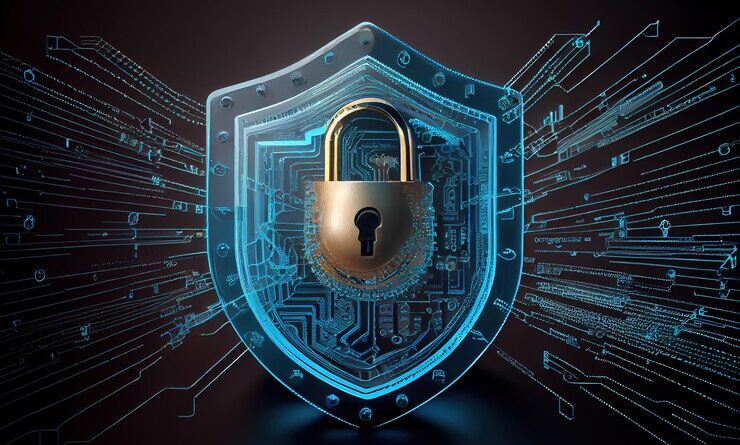Reimagining Cybersecurity Practices with ISO 27001 Certification
I. Introduction
A. The growing importance of cybersecurity in today’s digital landscape
In today’s hyper-connected world, cybersecurity has become a top priority for organizations of all sizes. As businesses increasingly rely on digital platforms, they face a growing risk of cyberattacks, data breaches, and intellectual property theft. These threats are evolving at an alarming rate, making it essential for companies to implement robust security measures to protect their digital assets. Not only do cybersecurity breaches expose sensitive information, but they also damage an organization’s reputation, erode customer trust, and lead to financial losses. In this environment, safeguarding data through structured security practices is not just necessary but vital for survival and growth in the digital age.
B. Overview of ISO 27001 certification and its role in enhancing information security
ISO 27001 is a globally recognized standard for establishing an Information Security Management System (ISMS). This certification outlines the criteria for managing and protecting sensitive data. It ensures companies adopt a systematic approach to safeguarding their information assets. Implementing ISO 27001 allows organizations to show their commitment to data security through structured risk management and continuous monitoring. It also ensures compliance with international best practices. ISO 27001 helps businesses address security challenges proactively, keeping their cybersecurity posture strong, resilient, and adaptive to emerging threats.
C. The relevance of ISO 27001 for organizations aiming to protect sensitive data and improve cybersecurity practices
For organizations looking to protect sensitive data and strengthen their cybersecurity, ISO 27001 certification provides a clear framework for action. It offers guidance on how to assess, manage, and mitigate security risks while implementing policies, controls, and processes that ensure the confidentiality, integrity, and availability of data. Adopting ISO 27001 enables organizations to identify vulnerabilities before they become threats, ensuring a comprehensive, proactive approach to cybersecurity. Furthermore, this certification fosters a culture of continuous improvement, helping businesses keep pace with the evolving landscape of cybersecurity challenges.
II. What is ISO 27001 Certification?
A. Definition of ISO 27001 and its purpose in establishing an information security management system (ISMS)
ISO 27001 is the international standard for managing and securing sensitive company information. The certification ensures that organizations have implemented an Information Security Management System (ISMS), a structured approach to managing sensitive data, protecting it from cyber threats, and ensuring compliance with relevant laws and regulations. The purpose of ISO 27001 is to provide businesses with a systematic and proactive way to manage and protect their information assets. This includes the development of security policies, risk assessments, and the implementation of controls designed to mitigate information security risks.
B. The evolution of ISO 27001 and its global adoption across industries
ISO 27001 was first introduced in 2005 and has since evolved to adapt to the increasing complexity of digital environments and the rise of new security threats. Over the years, the certification has become the global benchmark for information security. Today, ISO 27001 is recognized by organizations worldwide, spanning industries from finance and healthcare to technology and government. As cybersecurity threats grow, more companies are adopting the standard to ensure their data protection practices align with global best practices and regulatory requirements. The broad adoption of ISO 27001 reflects the growing recognition of the need for robust, standardized information security measures.
C. The key principles and structure of ISO 27001 (risk management, continuous improvement, etc.)
ISO 27001 is built on key principles that focus on proactive risk management and continuous improvement. The standard’s structure is based on the Plan-Do-Check-Act (PDCA) model, which ensures organizations consistently evaluate, implement, and improve their information security practices. A key element of ISO 27001 is risk management—identifying, assessing, and mitigating security risks that could potentially harm an organization’s information assets. The certification also emphasizes the importance of leadership, employee involvement, and continuous improvement, ensuring that organizations stay agile and responsive to new threats as they evolve. These principles ensure that businesses maintain an ongoing commitment to strengthening their cybersecurity defenses.
III. Why ISO 27001 Certification is Critical for Cybersecurity
A. Establishing a proactive approach to risk management and cybersecurity threats
ISO 27001 equips organizations with a structured framework to take a proactive stance toward identifying and managing security risks. Instead of waiting for a breach, businesses can use ISO 27001’s risk assessment and management processes to identify vulnerabilities early. By understanding potential risks, organizations can implement the right controls and security measures. This helps minimize exposure to threats, both external cyberattacks and internal weaknesses. A proactive approach prevents data breaches and ensures a swift response when incidents arise.
B. Reducing the likelihood of data breaches and minimizing their impact
A core objective of ISO 27001 is to reduce the likelihood of data breaches, ensuring that sensitive information remains protected. By implementing the controls and practices outlined in the standard, organizations can significantly reduce the risk of unauthorized access, data leaks, or loss of sensitive information. Additionally, ISO 27001 requires businesses to create an incident response plan that enables them to act quickly in the event of a breach, minimizing the impact and helping to mitigate potential damage. This preparedness can save organizations time, money, and reputation when dealing with security incidents.
C. Compliance with data protection regulations (e.g., GDPR, HIPAA)
In today’s regulatory environment, compliance with data protection laws is a critical concern. ISO 27001 helps businesses comply with various legal requirements such as the General Data Protection Regulation (GDPR), the Health Insurance Portability and Accountability Act (HIPAA), and other industry-specific regulations. The certification ensures that organizations implement appropriate measures to protect sensitive data, enhancing their ability to meet these regulations. By aligning with ISO 27001, businesses can reduce the risk of non-compliance penalties and safeguard their customers’ and employees’ personal information.
D. Building customer trust and enhancing organizational reputation
ISO 27001 certification acts as a strong signal to customers and stakeholders that an organization takes data security seriously. In an era of increasing cybersecurity threats, customers seek businesses that can ensure their information remains protected. Achieving ISO 27001 certification builds trust and demonstrates an organization’s commitment to maintaining robust cybersecurity practices. This not only strengthens customer loyalty but also enhances the organization’s reputation as a reliable and responsible entity in the marketplace.
IV. Conclusion
A. Recap of the importance of ISO 27001 certification in cybersecurity management
ISO 27001 is more than just a certification; it’s an essential tool for businesses aiming to protect sensitive data and enhance their cybersecurity. By implementing an Information Security Management System (ISMS), organizations can proactively identify and manage security risks. This framework helps businesses reduce vulnerabilities and build stronger defenses against cyber threats. ISO 27001 provides a clear, structured approach to safeguarding data. It also ensures compliance with regulations and promotes a culture of security throughout the organization. Adopting ISO 27001 enables businesses to stay ahead of evolving cyber threats while maintaining trust with stakeholders.
B. Encouragement for organizations to pursue ISO 27001 certification to enhance data security
Organizations should consider ISO 27001 certification as an essential part of their cybersecurity strategy. Not only does it provide the necessary tools to protect sensitive data and mitigate risks, but it also gives organizations a competitive edge by showcasing their commitment to data security. Pursuing ISO 27001 certification ensures that companies are taking the right steps to prevent cyberattacks, comply with regulations, and maintain customer trust in an increasingly digital world.
C. Final thoughts on the long-term benefits of maintaining robust cybersecurity practices through ISO 27001
Maintaining ISO 27001 certification ensures that organizations continue to evolve their cybersecurity practices as threats change. By committing to continuous improvement and regularly reviewing information security protocols, businesses can stay one step ahead of emerging risks. ISO 27001 provides a sustainable foundation for long-term cybersecurity, helping organizations navigate the complex digital landscape while protecting their critical assets and data. Ultimately, ISO 27001 certification is a vital investment in the future security and success of any organization.




